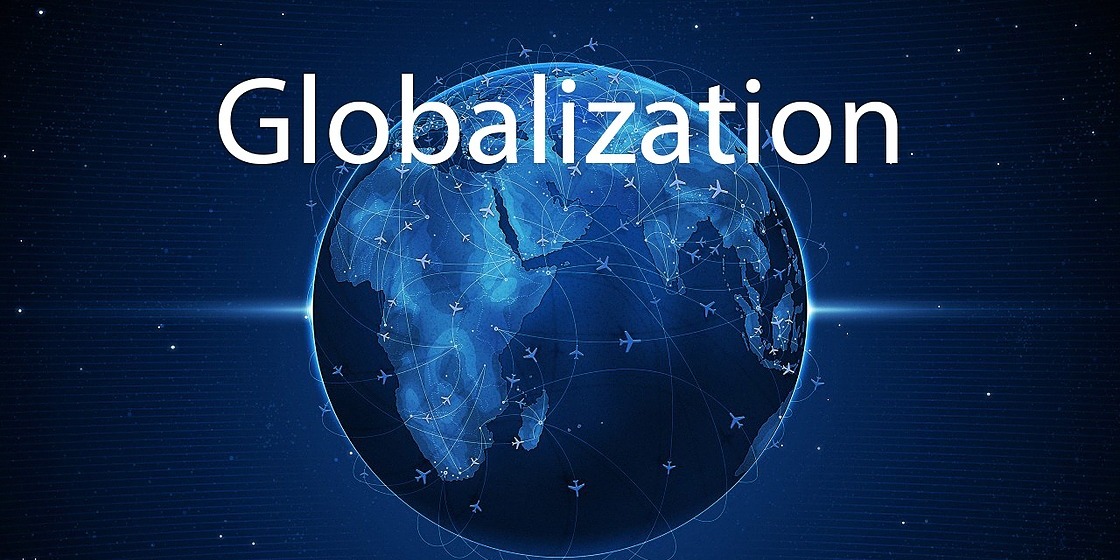I think this is due to the shallow foundations on which this concept was built up. Looking into history, it all started with Milton Friedman and similar school of economists who were more right winged politically, favored capitalism over FDR’s new deal type social welfare, and promoted the idea of tickle down theory in economics. Their underlying assumption was that if the corporations are given freedom to operate and carry out business without any government interference, then they will become rich, but in this process they will make their employees rich and in that way the riches will trickle down the hierarchy. After the 2007 sub-prime crisis, this theory got shaken and people started doubting it.
So, globalization is very much based on this theory. Due to the large corporation’s greed for getting rich, and dominating business throughout the world ( especially US businesses), they started finding out ways to reduce cost in production and labor. Until early 1970’s, all the manufacturing was done in US itself. But to compete soviet based communism, US politicians started reaching out to other third world countries to bring them to capitalism and with this, China was approached by Nixon in 1972, and later other nations like South Korea, Taiwan, Vietnam, Malaysia and India become a part of outsourcing US company operations in those countries to reduce cost and labor. This was especially escalated during the Reagan era, when he removed many regulations in the economy and the financialization of US industries began.
Also, that was an era when computer, semiconductor companies and stock market was at high, and much of the software was outsourced to India and the semiconductor companies started operating from Taiwan, China and Vietnam. Even core manufacturing companies like GE went from electrical to GE Capital, under the leadership of Jack Welch. Also, Japanese competition had driven US auto companies to either close down or outsource to other countries to cut down costs. Thus, globalization was widely accepted by all american corporates as a way to stay at the top of the business and drive out other competitors.
But as the corporate CEO’s became rich and richer over the years, US employees started losing their jobs to skilled labor force from China and India. Soon, many companies closed their operations in US and the rust belt became completely rusted as Japan and Germany leaded the auto-industry. But US took lead in computer, e-commerce and wireless industry, with many leading companies like Microsoft, Apple, Dell, Cisco, Facebook, Google and Amazon. But, even though the founders and management of the company were Americans, but to stay ahead in the competition ( to reduce cost and increase the business), they had to hire immigrants from India and China, and this way the H1-B employment programme gained momentum to cater these companies growing requirement of engineers. This resented many local people and due to which silicon valley soon became the hub of immigrants.
Also, its worth noting that to gain funding from these tech companies and Wall street, US politicians (both sides) kept supporting immigrants to come in US and work. Until Trump started opposing this policy, it was business as usual for the companies. So, this is when globalization started becoming controversial. For the last 4 years, Trump has reversed many policies and decisions taken by US presidents ( both parties) and infact, his election is also based on his stand against globalization and immigrants.
But though globalization has led to many changes as mentioned above, but it has also made US companies lead the world. If they had not been provided all the labor force needed with the growing business, then they won’t have become giants as seen today. Also, I think with the disappearance of Soviet Union and its communism from global stage in 1991, it was imperative for US to lead the world after that, and with this the flow of US products and industries to other nations as well. We need to understand that even though manufacturing and services jobs might have migrated to China and India respectively, but then that vacuum was filled by growing entrepreneurship among Americans ( Facebook, Tesla, Google, Snapchat, Twitter, Whatsapp all were founded after 1991). Startups has become a new fashion for the young Americans in last 30 years and not working in a factory or doing a regular desk job. So, in a way, this has benefited all.
But globalization has its cons too. It has created China as a new economic superpower which is competing with USA. It has led to immense income inequality between the rich and the poor. Never in history was the wealth gap between rich and the poor so wide as seen today. Then, globalization has led many developed countries to depend on the other countries and so the supply chain economics has been affected. Especially, since the start of coronavirus pandemic, USA’s over dependence on China (which is a outcome of globalization) has strongly raised public opinion against globalization. Besides, globalization has enormously affected the environment, as the rapid industrialization of many countries has led to ecological imbalance and has contributed to global warming. Globalization has led to enormous consumerism and this has resulted in a society where the demand is ever growing and the supply is dwindling due to limited resources. So, to keep the supply in demand with the growing world population, more urbanization, industrialization and deforestation is being done today. All this is not sustainable in the long run and many intellectuals and environmentalists have raised up this issue on global platforms.
So, due to all this, globalization has become controversial.
To be continued…..


